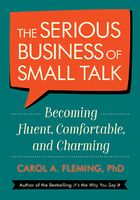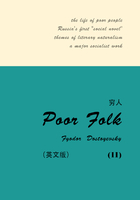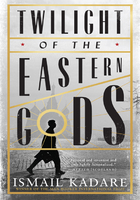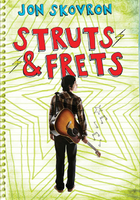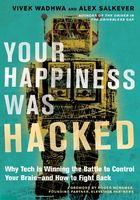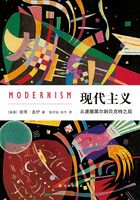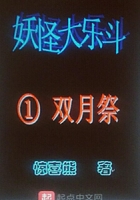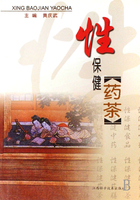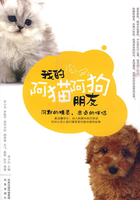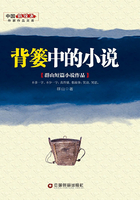As they left the Questura, Brunetti saw one of the launches approaching. The new pilot, Foa, stood at the wheel and he gave Brunetti a smile and Vianello a wave as he pulled up to the dock. 'Where are you going?' Foa asked, and then added, 'sir', to make it clear whom he was addressing.
'Piazzale Roma,' Brunetti said. He had called the substation there and asked that a car be ready for them. Because there had been no launch visible from his window, he had assumed that he and Vianello would have to take the vaporetto.
Foa looked at his watch. 'I don't have to be anywhere until eleven, sir, so I could easily take you there and get back.' Then to Vianello, 'Come on, Lorenzo: the weather's perfect today.'
They needed no more to lure them on to the deck, where they remained while Foa took them up the Grand Canal. At Rialto, Brunetti turned to Vianello and observed, 'First day of spring, and we're both playing hooky again.'
Vianello laughed, not so much at what Brunetti had said but at the perfect day, the certain slant of light on the water in front of them, and at the joy of playing hooky on the first day of spring.
As the boat slipped into one of the taxi ranks at Piazzale Roma, both men thanked the pilot and stepped up on to the dock. Beyond the ACTV building, a police car waited, engine running, and as soon as they got in, it pulled out into the traffic leading across the causeway to the mainland.
At the Mestre headquarters, Brunetti quickly learned that the case of the detained protesters had been assigned to Giuseppe Zedda, a commissario he had worked with some years before. A Sicilian and almost a head shorter than Brunetti, Zedda had impressed him then with his rigorous honesty. They had not become friends, but as colleagues they had shared a mutual respect. Brunetti trusted Zedda to see that things were done fairly and well and that none of the people arrested would be prevailed upon to give statements they might later retract.
'Could we speak to one of them?' Brunetti asked, after he and Vianello had turned down Zedda's offer to have a coffee in his office.
'Which one?' Zedda asked, and Brunetti realized he knew nothing more about the man under arrest than that his name was Marco and he was a friend of Vianello's.
'Ribetti,' Vianello supplied.
'Come with me,' Zedda said. 'I'll put you in one of the interrogation rooms and get him for you.'
The room was like every interrogation room Brunetti had ever known: the floor might have been washed that morning – it might have been washed ten minutes ago – but grit crunched underfoot, and two plastic coffee cups lay on the floor beside the wastepaper basket. It smelled of smoke and unwashed clothing and defeat. Entering it, Brunetti wanted to confess to something, anything, if only it would get him out of there quickly.
After about ten minutes Zedda came back, leading a man taller than himself yet at least ten pounds lighter. Brunetti often noticed that people who were arrested or held overnight in police custody quickly came to shrink inside their clothing: such was the case here. The bottoms of the man's trousers touched the ground, and his shirt bunched up and overflowed his buttoned jacket. He had apparently not been able to shave that morning, and his hair, thick and dark, stuck up on one side. His ears jutted out and gave him an ungainly look that went with the outsize clothing. He looked at Brunetti without expression, but on seeing Vianello he smiled with relief and pleasure, and when his face softened Brunetti saw that he was younger than he had first seemed, perhaps in his mid-thirties.
'Assunta found you?' the man asked, embracing Vianello and clapping him on the back.
The Inspector seemed surprised at the warmth of the greeting but returned Ribetti's embrace and said, 'Yes, she called me before I left for work and asked if there was anything I could do.' He took a step back and turned to Brunetti. 'This is my commander, Commissario Brunetti. He offered to come with me.'
Ribetti put out his hand and shook Brunetti's. 'Thank you for coming, Commissario.' He looked at Vianello, at Brunetti, then back to Vianello. 'I didn't want to …' he left the sentence unfinished. 'That is, I didn't want to cause you so much trouble, Lorenzo.' And to Brunetti, 'Or you, Commissario.'
Vianello walked over to the table, saying, 'It's no trouble, Marco. It's what we do all the time, anyway: talk to people.' He pulled out two of the chairs on one side of the table and then the one at the head, which he held for Ribetti.
When they were all seated, Vianello turned to Brunetti, as if handing over to him. 'Tell us what happened,' Brunetti said.
'Everything?' Ribetti asked.
'Everything,' Brunetti answered.
'We've been out there for three days,' Ribetti began, looking at the two men to see if they knew about the protest. When both nodded in acknowledgement, he said, 'Yesterday there were about ten of us. With placards. We've been trying to convince the workers that what they're doing is bad for all of us.'
Brunetti had few illusions as to how willing workers would be to give up their jobs when told that what they were doing was bad for countless people they didn't know, but he nodded again.
Ribetti folded his hands on the table and looked at his fingers.
'What time did you get there?' Brunetti asked.
'It was in the afternoon, about three-thirty,' he answered, looking at Brunetti. 'Most of us on the committee have jobs, so we can go out only after lunch. The workers come back at four, and we like them to see us, maybe even listen to us or talk to us, when they go in.' A look of great perplexity came over his face, reminding Brunetti of his son, as Ribetti said, 'If we can make them understand what the factory is doing, not only to them, but to everyone, then maybe …'
Again, Brunetti kept his thoughts to himself. It was Vianello who broke the silence by asking, 'Does it do any good, talking to them?'
Ribetti answered this with a smile. 'Who knows? If they're alone, sometimes they listen. If there's more than one of them, though, they just walk past us, or sometimes they say things.'
'What sort of things?'
He looked at the two policemen, then at his hands. 'Oh, they tell us they aren't interested, they have to work, they have families,' Ribetti answered, then added, 'or they get abusive.'
'But no violence?' Vianello asked.
Ribetti looked at him and shook his head. 'No, nothing. We've all been trained not to react, not to argue with them, never to do anything that could provoke them.' He continued to look at Vianello, as if to convince him of the truth of this by the sincerity of his expression. 'We're there to help them,' he said, and Brunetti believed he meant it.
'But this time?' Brunetti asked.
Ribetti shook his head a few times. 'I have no idea what happened. Some people came up to us – I don't know where they came from or whether they were with us or were workers – they started to shout, and then the workers did, too. Then someone pushed me and I dropped the placard I was carrying, and after I picked it up, it looked like everyone had suddenly gone crazy. People were shoving and pushing one another, then I heard the police sirens, and then I was on the ground again. Two men pulled me up and put me in the back of a van, and they brought us here. It wasn't until almost midnight that a woman in uniform came into the cell and said I could call someone.' He hurried through this summary, his voice sounding as confused as the events he described.
He turned back and forth between Brunetti and Vianello, then said to the latter, 'I called Assunta and told her where I was, what had happened, and then I thought of you. And I asked her to see if she could find you and tell you what had happened.' His voice changed as he asked, 'She didn't call you then, did she?' he asked, forgetting that Vianello had already told him.
Vianello smiled. 'No, not until this morning.' Brunetti noticed that Ribetti seemed relieved to hear this.
'But you didn't have to come all the way out here for me,' Ribetti said, using the plural. 'Really, Lorenzo: I don't know what I was thinking of when I asked her to call you. I guess I panicked. I thought you could make a phone call to someone here or something, and everything would be all right.' He raised a hand in Vianello's direction and said, 'Really, it never occurred to me that you'd have to come out here.' Then, to Brunetti, 'Or that you'd have to come, Commissario.' He looked at his hands again. 'I didn't know what to do.'
'Have you ever been arrested before, Signor Ribetti?' Brunetti asked.
Ribetti looked at him with an astonishment he could not disguise: Brunetti might as well have slapped him. 'Of course not,' he said.
Vianello interrupted to ask, 'Do you know if any of the others have ever been arrested?'
'No, never,' Ribetti said, voice rising with the force of his insistence. 'I told you: we're trained not to cause trouble.'
'Isn't a protest like yours a form of trouble?' Brunetti asked.
Ribetti paused, as if he were playing the question back in his mind to check for sarcasm. Apparently finding none, he said, 'Of course it is. But it's non-violent, and all we're trying to do is make the workers understand how dangerous what they do is. Not only for us, but for themselves even more.'
Brunetti noticed that Vianello accepted this, so he asked, 'What dangers, Signor Ribetti?'
Ribetti looked at Brunetti as though he had just asked the sum of two plus two, but he wiped the expression away and said, 'The solvents and chemicals they work with, more than anything else. At least at the paint factory. They spill them and splash them on themselves and breathe them in all day. And that's not even to mention all the waste they have to get rid of. Somewhere.'
Brunetti, who had been hearing this kind of thing from Vianello for some time, avoided the Inspector's glance. He asked, 'And do you think your protests will change things, Signor Ribetti?'
Ribetti threw his open hands in the air. 'God knows. But at least it's something, some little protest. And maybe other people will see that it's possible to protest. If we don't,' he said, his voice mournful and filled with conviction, 'they'll kill us all.'
Precisely because he had had this kind of conversation with Vianello many times, Brunetti did not have to ask Ribetti who 'they' were. Brunetti realized how much he too had come to believe, how much he had been converted, in recent years, and not only because of Vianello's ecological conscience. He increasingly noticed articles about global warming, about the ecomafia and their unbridled dumping of toxic waste all over the South; he had even come to believe that there was a connection between the murder of a RAI television journalist in Somalia some years before and the dumping of toxic waste in that poor afflicted country. What surprised him was that there were people who could still believe that protesting against such things, in their small way, would make some difference. And, he confessed to himself, he did not like to admit that it surprised him.
'But to more practical matters,' Brunetti said abruptly. 'If you've never had any trouble with the police before, then it might be possible for us to do something.' He looked at Vianello. 'If you stay here, I'll go and talk to Zedda and have a look at the report. If no one's been hurt and if no charges have been brought, then I see no reason why Signor Ribetti has to remain in custody.'
Ribetti cast him a glance of mingled fear and relief. 'Thank you, Commissario,' he said, and then quickly added, 'Even if you can't do anything or if nothing happens, still, thank you.'
Brunetti stood up. He went to the door and was glad to find it unlocked. Out in the corridor, he asked for Zedda, whom he found in his office, an office only a quarter the size of his own, with one window that looked out over a parking lot.
Even before Brunetti could ask, Zedda said, 'Take him home, Brunetti. Nothing's going to come of this. No one got hurt, no one has made a denuncia, and we certainly don't want any trouble with them. They're a pain in the ass, but they're harmless. So just pack up your friend and take him home.'
A younger Brunetti might have thought it necessary to make clear that Ribetti was Vianello's friend and not his, but after so many years working with the Inspector, Brunetti could no longer make this distinction, so he thanked Zedda and asked if there were any forms to be signed. Zedda waved him away, saying that it had been good to see Brunetti again, and came around his desk to shake hands.
Brunetti returned to the interrogation room, told Ribetti that he was free to go and could come with them if he chose, then led the others out to the waiting police car.

